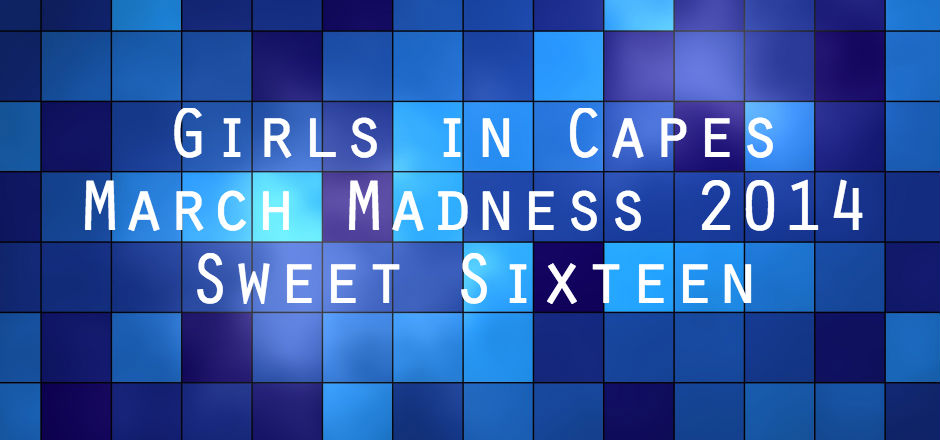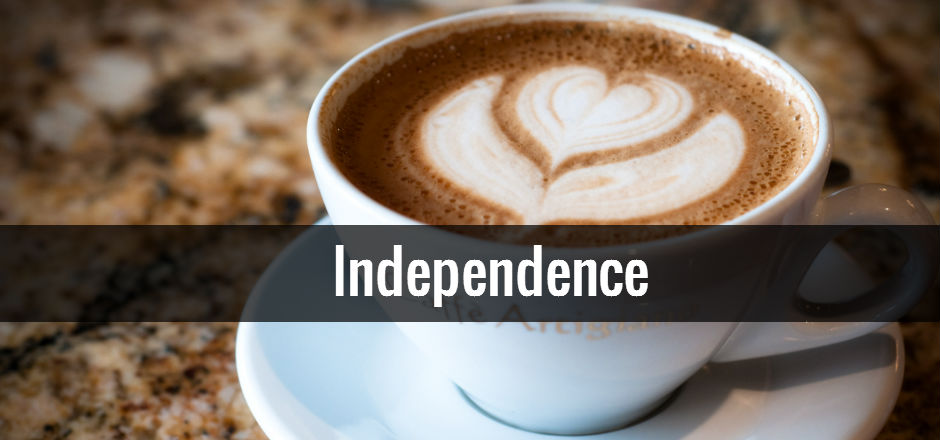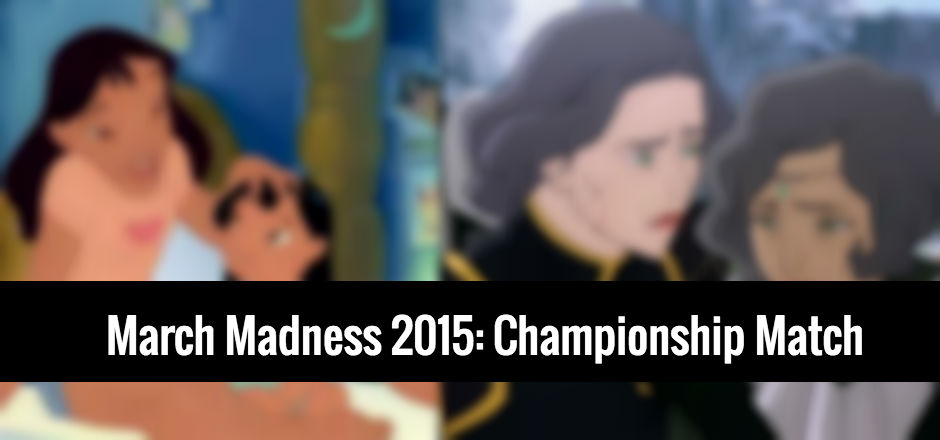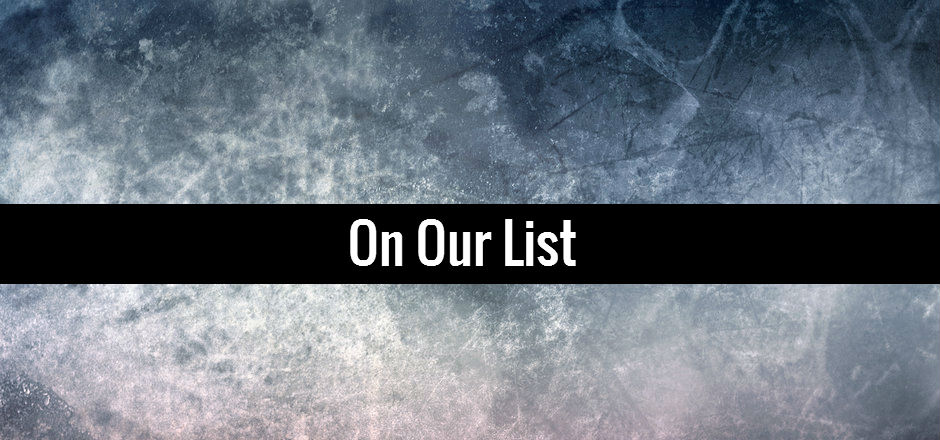It’s been a while since I’ve written an editor’s letter. In a lot of ways, Girls in Capes has grown not to need them. We’re a staff of several women (and one man) strong, and we’ve watched our community grow each month.
While I couldn’t be more proud of the staff and the work we’ve done over the past four years, circumstances of the world as we enter our fifth year have caused me to reconsider the direction of the site.
We cover a lot of topics and fandoms at Girls in Capes. You’ll find quite a lot of articles about The Legend of Zelda, for example. Staff writers have talked about the importance of Hermione Granger on more than one occasion, and other topics in the Harry Potter universe. We talk about Teen Wolf and The Lumberjanes and Buffy the Vampire Slayer. We are a multicultural group representing many different parts of the LGBTQ spectrum, and over the years, much of the work on this site reflects that.
Two days after the election was announced, a staff writer submitted a piece that hadn’t been on our editorial calendar. I just wrote this thing. I don’t know if it’s usable, it’s more of an outpouring of feeling than anything. But I don’t know what to do with it.
It turned out that the piece was usable, and as I worked with the writer to pull her outpouring of emotions into something more linear and cohesive, my own feelings started bubbling up until I felt like my head was clouded over.
When Girls in Capes launched in 2013, my goal had been to elevate the work of women, LGBTQ creators, and people of color, whose work often gets overlooked. There are some policies on the site that reflect this. For example, there are very few times we review a work that’s 2 stars or fewer. I wanted Girls in Capes to be uplifting while also critical, one reason we now have the annual Problematic Favorites Issue each October.
But there’s a line at the end of the piece the writer submitted that made my breath stop in my throat when I read it.
[blocktext align=”center”]Our words matter. Our actions matter.[/blocktext]
I am not in the habit of remaining silent. Numerous family members will attest to this. My friends will also attest to this. As someone in Westeros might say, “It is known.”
Yet in the months after the election, I fell silent and hopeless. I feared for the safety of my father, a brown-skinned immigrant who speaks with an accent. I feared for the safety of one of my closest friends, a young Persian-American who speaks Farsi with her family. I’ve watched growing backlash against Muslim-Americans and immigrants of color and Latinx Americans, and it’s made me question the safety of many of the people I care about, including my father and my younger siblings.
The America I know has turned ugly and hateful — or, to be more accurate, uglier and more hateful than it was before. The people around me insist on saying that 2016 was just a shit year and that it was just God or fate or whatever they believe in and that there was no way to salvage it because we were helpless to change it.
That’s bullshit.
Nihilistic resignation is not the path to progress; action is the path to the progress of hope. Your voice, how you use it, and both what you do and what you choose not to do.
With that in mind, I sat down and began an email to the staff about what we will resolve to do this year.
We must reduce focusing on media centered on straight white male experiences.
The geek community is incredibly bad about this. (The Avengers, Doctor Who, Harry Potter, Lord of the Rings… Do I need to go on?)
[blocktext align=”right”]Nihilistic resignation is not the path to progress; action is the path to the progress of hope.[/blocktext]Unfortunately, Girls in Capes is also guilty of this. We’ve covered many of those franchises, which mainly offer very poor representation in the diversity of ethnicity, race, gender, sexuality, and religious views.
That will no longer be part of our policy.
Priority will be placed on books centering on LGBTQ and POC experiences, and author spotlights, interviews, and tours will prioritize authors of color and authors who identify as LGBTQ. Our focus in the TV & Film section will shift to focus more significantly on female filmmakers, with our assistant TV & Film editor planning a year-long spotlight on women in the industry both in front of and behind the camera.
We’ll recommend books and comics featuring different faces, different languages, different cultures. We’ll choose titles for our book club that reflect the changing face of America. Game of Thrones gets enough press and buzz — we’ll talk about what to look at next.
We will focus on community-building and mentorship.
The Girls in Capes Book Club launched in 2014, and with the help of our YA Reviewer, the club slowly grew from a small set of mostly bookstore employees to a more consistent group of friends who share the same interest in socially-conscious science fiction and fantasy. In the western Philadelphia suburbs, we built a community of readers who could feel safe discussing topics of social justice in our book club, despite being unable to discuss those topics elsewhere.
[blocktext align=”right”]We built a community of readers who could feel safe discussing topics of social justice in our book club, despite being unable to discuss those topics elsewhere. [/blocktext]We will work this year to expand how we build communities both online and in real life. Amber will help launch a second chapter of the Girls in Capes Book Club at Quail Ridge Books in Raleigh, North Carolina; I’ve started moderating a second book club for Amalgam Comics & Coffee in Philadelphia. (You can follow our events to see what’s coming next on our Facebook page.)
You’ll also hear more from us on social media, sharing work done by others in the same fields. We plan to spend 2017 bringing our readers even more positive news about inclusion in entertainment, and we want our readers to know about other sites doing the same.
We will continue to critique and criticize whitewashing, misogyny, and homophobia in artistic works and within fan communities.
The staff writers’ drive to critique works that fail our populations led to the original Problematic Favorites Issue in 2014, and its popularity with both readers and staff led to the followup issues every year since. I already have plans for the Fourth Problematic Favorites issue in October 2017.
Problematic favorites pieces are the pieces that move people. They make us think critically. While we’ve gotten flack (and some pretty nasty comments) because of some of the issues we’ve pointed out, we have also heard one thing pretty consistently since we started: “I never thought about that before.”
[blocktext align=”right”]Problematic favorites pieces are the pieces that move people. They make us think critically.[/blocktext]As 2017 proceeds, we’ll keep talking about what our favorite things do wrong: whitewashing in Marvel’s Iron Fist series, whitewashing in fandom, Bad Fan Behavior, and more. As Laura said in “How Do We Turn on the Light?,” our words are important, and we have to stand up not only for ourselves, but for each other. White allies need to stand up against racism. Straight allies need to stand up against homophobia. People of color need to stand up for each other, not just themselves.
We must continue to be critical of people who display tendencies of discrimination. The marginalized have to stand up for themselves — the U.S. Civil Rights Movement has and continues to demonstrate that — but without the support of the privileged, the fight becomes even more difficult.
Most of all, we will not forget to share the good things happening in our communities.
So much of what I’ve written so far has been doom and gloom. I won’t lie: the next year — and probably the remaining three after that — will be incredibly difficult.
But there are incredible people doing incredible things, and we as a community have to support those incredible people and things to ensure they keep being incredible and don’t disappear. Here are some of the incredible things that I know about already:
- The first-ever ClexaCon is coming. A con centered on LGBTQ women in entertainment, ClexaCon will take place the first weekend of March in Las Vegas. Inspired by the controversial death in The 100 last year, ClexaCon hopes to unite LGBTQ women and allies by connecting and empowering a diverse base of fans, creators, and critics to improve visibility in the media.
- Another year at Amalgam Comics & Coffee. Amalgam made headlines as the first East Coast comic book shop owned by a black woman. I have the privilege of knowing Ariell Johnson, the owner in question, and this year, I plan to continue visiting the store, meeting friends there, and supporting a woman-owned local business. Please consider supporting other woman-owned, POC-owned, and LGBTQ-owned businesses in your community.
- Universal Fan Con was funded. This convention, the brainchild of creators behind The Black Geeks and Black Girl Nerds, is a Baltimore-area convention dedicated to inclusion in fandom. While we’ll have to wait until 2018 to get to this con, I’m incredibly excited to see a convention that explicitly dedicates itself to including all groups. I look forward to the first Universal Fan Con in April 2018, and I hope I’ll see you there.
Of course, there are many more incredible things that we don’t know about yet. We’ll keep digging. We’ll keep our eyes on social media and in our inboxes. But we’ll also keep sharing, because what critics want is silence, and we need to keep our voices loud.
—
This is about words and actions. It’s about choosing that N.K. Jemisin or Emily Skrutskie book for book club instead of the John Scalzi or the James Dashner. It’s about going to see Hidden Figures instead of Patriots Day. It’s about dropping TV shows that kill off their women of color or their gays. It’s about refusing to see films that whitewash protagonists.
Change will not happen as long as we continue to financially support studio and publisher decisions that treat creators and characters who are female, LGBTQ, or people of color as nonentities. We can shout all we want into the abyss that a book, movie, or TV show is ethically wrong, but until we and our allies make our preferences known with our wallets, nothing will change.
Entertainment is a business before it’s an art form, and it’s up to us to prove that inclusion is a financially feasible and profitable venture. We can’t wait for creators like Ava DuVernay and Shonda Rimes to make great diverse media suddenly appear. We have to show studios and publishers that we, the customers, want it.
And to that end, our resolution is to show our support to creators who are female, LGBTQ, and people of color this year. Our resolution is to use our voices to say what’s right, what’s not, and to share the successes of the people within our communities. Our resolution is to normalize the other and not normalize hatred.
Our resolution this year is to take action in order to make progress towards hope. Please join the staff of Girls in Capes and activists throughout our country as we continue trying to make America better, stronger, and safer for people of all backgrounds.
—
Feliza Casano is a biracial woman, the daughter of an immigrant, and is the third generation of her family born in Toledo, Ohio. She supports woman-owned bookstores in her new home of Philadelphia, reads diverse books, and has been chastised for being a bad ally in the past and continues learning to be a better one. She will march with Philadelphia tomorrow morning.
—
Please consider supporting the Southern Poverty Law Center, a nonprofit organization dedicated to fighting hatred that tracks and researches hate groups and hate crimes. We also encourage support of the National Women’s Law Center, which advocates for improvements in the lives of women with focus in gender & marriage equality, poverty & economic security, workplace equality, and healthcare & reproductive rights.





